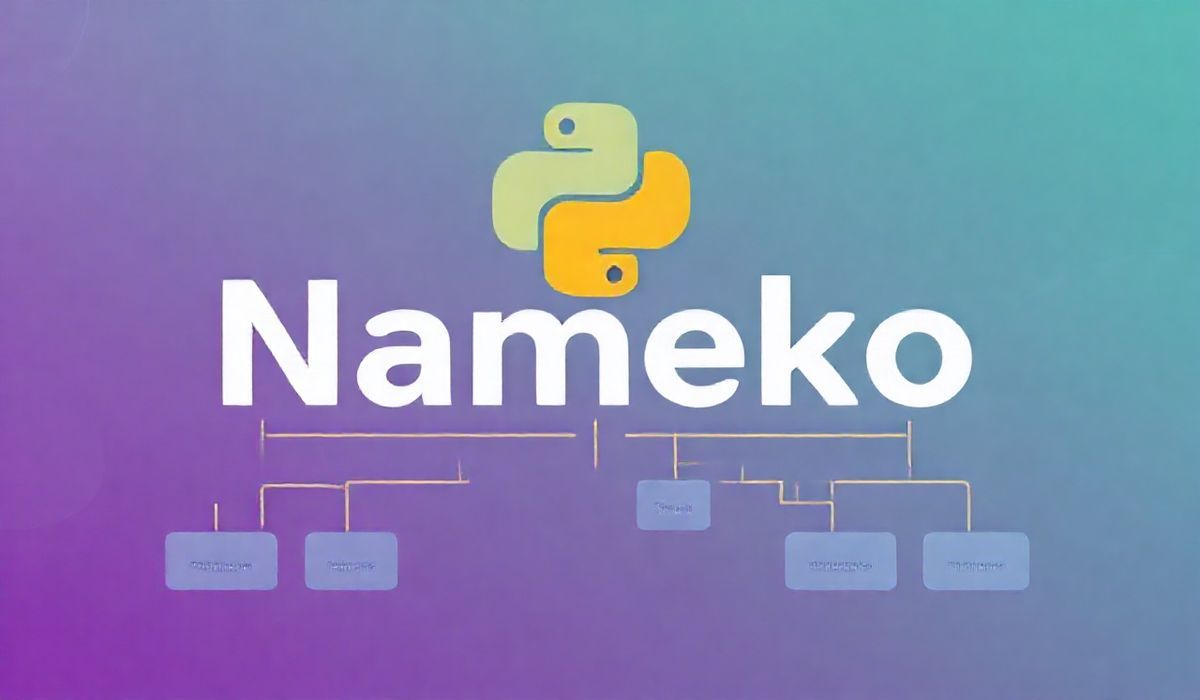Introduction to Nameko – A Microservices Framework for Python Developers
Building scalable and maintainable microservices in Python has been simplified with frameworks like Nameko. This powerful tool allows developers to focus on business logic without worrying about boilerplate code or infrastructure. In this blog post, we’ll delve into the benefits of Nameko, its core APIs, and walk through practical examples to get you started.
What is Nameko?
Nameko is a Python-based framework that makes deploying microservices simple and scalable. It provides built-in support for a variety of messaging protocols, RPC (Remote Procedure Call) mechanisms, event dispatching, and much more. Its lightweight nature paired with powerful abstractions enables the rapid development of distributed systems.
Useful APIs in Nameko
Here are some of the most commonly used APIs in Nameko along with explanations and code snippets to help you understand their purpose and usage:
1. RPC (Remote Procedure Call)
RPC allows microservices to invoke methods exposed by other services seamlessly.
from nameko.rpc import rpc
class HelloService:
name = "hello_service"
@rpc
def hello(self, name):
return f"Hello, {name}!"
In the above example, HelloService exposes an RPC method hello, which any other service can call.
2. Event Dispatcher and Listener
The event dispatcher allows one service to publish events which other services can consume using event listeners.
from nameko.events import EventDispatcher, event_handler
class PublisherService:
name = "publisher_service"
dispatch = EventDispatcher()
@rpc
def trigger_event(self, payload):
self.dispatch("greeting_event", payload)
class SubscriberService:
name = "subscriber_service"
@event_handler("publisher_service", "greeting_event")
def handle_event(self, payload):
print(f"Received payload: {payload}")
Here, PublisherService dispatches an event which SubscriberService listens to and handles accordingly.
3. Dependency Injection With Service Containers
Custom dependencies make it easy to manage shared resources like database connections or REST clients.
from nameko.extensions import DependencyProvider
class Database(DependencyProvider):
def get_dependency(self, worker_ctx):
return SomeDatabaseConnection()
class DatabaseService:
name = "database_service"
db = Database()
@rpc
def fetch_data(self, query):
return self.db.execute(query)
Using a custom dependency provider allows you to embed shared functionality in worker containers.
4. HTTP Entry Points
You can expose Nameko services over HTTP using the HTTP entry point:
from nameko.web.handlers import http
class HttpService:
name = "http_service"
@http("GET", "/greet/")
def greet(self, request, name):
return f"Hello, {name}!"
Now, sending a GET request to /greet/John will return "Hello, John!".
5. Timer
Use Nameko’s timer decorators for scheduling periodic tasks:
from nameko.timer import timer
class ScheduledService:
name = "scheduled_service"
@timer(interval=10)
def say_hello(self):
print("Hello, World! This will execute every 10 seconds.")
Building an App With Nameko
Let’s create a small application using most of the APIs explained above. The application is a greeting service that can:
- Accept HTTP requests to generate greetings.
- Respond to RPC for personalized greetings.
- Publish and listen to events for greeting logs.
from nameko.rpc import rpc
from nameko.web.handlers import http
from nameko.events import EventDispatcher, event_handler
class GreetingService:
name = "greeting_service"
dispatch = EventDispatcher()
@http("POST", "/greet")
def greet_http(self, request):
name = request.get_json()["name"]
greeting = f"Hello, {name}!"
self.dispatch("greeting_created", greeting)
return greeting
@rpc
def greet_rpc(self, name):
greeting = f"Hello, {name}!"
self.dispatch("greeting_created", greeting)
return greeting
class LogService:
name = "log_service"
@event_handler("greeting_service", "greeting_created")
def log_greeting(self, greeting):
print(f"Logged greeting: {greeting}")
Deploy these services with a Nameko service runner and witness seamless communication between the components.
Conclusion
Nameko simplifies the development of microservices by abstracting complex concepts and providing easy-to-use APIs. Whether you’re creating HTTP endpoints, handling RPC calls, or publishing/consuming events, Nameko has you covered. Start today and build scalable distributed systems with ease!




